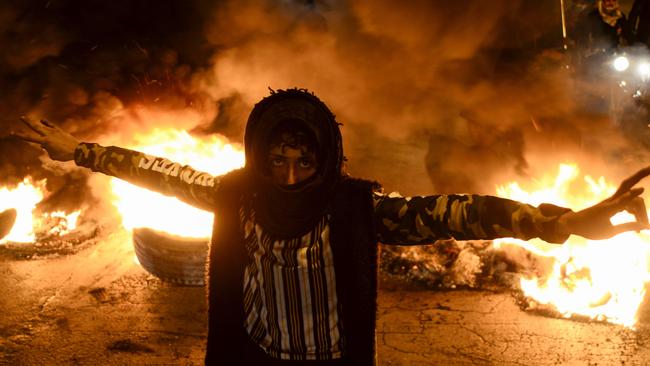New Iraqi leader fails to appease protesters
Iraq’s president named Mohammad Allawi as the country’s new prime minister, but protesters remain ambivalent.

Iraq’s President named former communications minister Mohammad Allawi as the country’s new prime minister after an 11th-hour consensus among political blocs, but the streets were ambivalent about his nomination.
Baghdad and the mainly Shi’ite south have been gripped by four months of anti-government rallies demanding snap elections, a politically independent prime minister and accountability for corruption and protest-related violence. Prime Minister Adel Abdel Mahdi resigned in December but political factions had been unable to agree a replacement.
Frustrated by the delays and worried about further instability, President Barham Saleh gave political blocs until Saturday to nominate a new prime minister, sending them into crisis talks that produced a consensus on Mr Allawi.
On Saturday night, Mr Allawi addressed Iraqis on state TV, pledging to form a representative government, hold early parliamentary elections and ensure justice for protest-related violence — all key demands of protesters.
More than 480 people have died and nearly 30,000 have been wounded in protest-related violence since October but few have been held accountable for the bloodshed.
“This nomination places a huge, historic responsibility on my shoulders,” Mr Allawi said in his formal address. He had earlier posted a video to Twitter announcing the nomination. “I will ask you to keep up the protests, because if you are not with me, I won’t be able to do anything,” Mr Allawi said in Iraqi dialect.
The 65-year-old Shi’ite served as communications minister twice under Nouri al-Maliki but resigned both times, alleging corruption and interference in appointments.
Mr Abdel Mahdi congratulated his successor and the UN welcomed the move. “The prime minister-designate faces a monumental task,” said the UN’s top official in Iraq, Jeanine Hennis-Plasschaert. “The United Nations has called time and again on all stakeholders to rise above partisanship and place the national interest first. Now is the time to act.”
The contenders needed a green light from a dizzying array of interests — the divided political class, the Shia religious leadership, neighbouring Iran, the US as well as the protesters.
Shia cleric Moqtada Sadr controls parliament’s largest bloc and many ministerial posts but backed the protests when they erupted in October. Mr Sadr threw his weight behind Mr Allawi. “This is a good step,” he tweeted. “I hope the President’s appointment of Mohammad Allawi is acceptable to the people and that they have patience.”
Protesters across Iraq were unconvinced. Within minutes of the announcement, many in Baghdad’s main protest camp of Tahrir Square began chanting “Allawi is rejected, Allawi is rejected!” Demonstrators hit the streets in the holy city of Najaf, pledging to escalate their movement further as Mr Allawi was not the independent they had long demanded.
“Mohammad Allawi’s nomination came with the approval of the same corrupt political blocs we’ve been protesting against for over four months,” said lawyer Hassan Mayahi, marching in the southern hotspot of Diwaniyah.
AFP



To join the conversation, please log in. Don't have an account? Register
Join the conversation, you are commenting as Logout